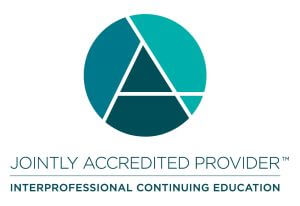
Live From Industry: Achieving a 1% Standard for Blood Culture Contamination Rate: Driving Best Practices and Practice Change Statewide
Recorded On: 05/02/2024
-
You must log in to register
- Non-member - Free!
- Member - Free!
CE: 0 / IPU: 0
Thursday, May 2, 2024 @ 1 pm ET
Tammy Johnson, RN, BS, CPM and Debra Campbell, RN-BC, MSN, CPHQ, IP, T-CHEST, CCRN
Reducing blood culture contamination rate plays a significant role in driving antibiotic stewardship efforts and improving quality outcomes for hospital and healthcare systems. With the release of the recent CDC guidelines, Blood Culture Contamination: An Overview for Infection Control and Antibiotic Stewardship Programs Working with the Clinical Laboratory, more and more healthcare providers are seeking practice changes, including technology solutions, that will help them achieve the new CLSI goal of 1% blood culture contamination rate with best practices. In this webinar, learn more about these current and future measures to reduce contamination rates and improve the accuracy of blood culture results, and the practice change initiative of the Kentucky Hospital Association (KHA) to benchmark blood culture contamination rates and drive evidence-based best practices to reduce these rates statewide.
Continuing Education (CE) Credit:

In support of improving patient care, The Association for Professionals in Infection Control and Epidemiology, Inc. (APIC) is jointly accredited by the Accreditation Council for Continuing Medical Education (ACCME), the Accreditation Council for Pharmacy Education (ACPE), and the American Nurses Credentialing Center (ANCC), to provide continuing education for the healthcare team.
Nursing:
- APIC designates this activity for 0 Nursing Contact Hours
Physicians:
- APIC designates this live course activity for a maximum of 0 PRA Category 1 Credits™
- Physicians should claim only the credits commensurate with the extent of their participation in the activity.

IPUs
- APIC designates this activity for 0 infection prevention unit(s).
- For more information, please see https://www.cbic.org/CBIC/Recertify/Recertification-by-Continuing-Education.htm
Tammy Johnson, RN, BS, CPM
AVP, Clinical Strategy and Customer Relations
Magnolia Medical Technologies
Tammy Johnson is the Associate Vice President Clinical Strategy and Customer Relations at Magnolia Medical Technologies. She is a healthcare executive with over 30 years in nursing, 14 as a nurse leader, whose focus has been on raising standards of care for patients, optimizing outcomes and decreasing healthcare spend by first preventing patient harm. Through various presentations, many hospital associations and other organizations, in addition to an invitation to address the Presidential Advisory Council Combating Antibiotic-Resistant Bacteria in Washington, DC, Tammy has championed awareness of evidence-based, metric-driven improvement processes and programs that result in sustainable, positive outcomes for patients. Tammy holds degrees in nursing, business, and health care management.
Debra Campbell, RN-BC, MSN, CPHQ, IP, T-CHEST, CCRN
Vice President, Clinical Strategy and Transformation
Kentucky Hospital Association
Deb Campbell is Vice President of Clinical Strategy and Transformation for the Kentucky Hospital Association. Immediately previous, she acted as VP of Quality and Health Professions at the KHA. She has been a nurse for over 40 years and has experience as a pediatric ICU unit director, Pediatric Cardiovascular CNS, Director of Infection Prevention and Employee Health and legal nurse consultant. Deb is currently serving on the Steering Committee for the Children’s Hospital Association’s Quality Transformation Network. Deb has co-authored papers on Central Line Associated Blood Stream Infections, pediatric >span class="NormalTextRun SCXW150990715 BCX0"> and pediatric sepsis collaborative work. Deb leads the Kentucky Sepsis Consortium and serves on the boards of the Kentucky Organization of Nurses Leaders and the Kentucky Association of Healthcare Quality.